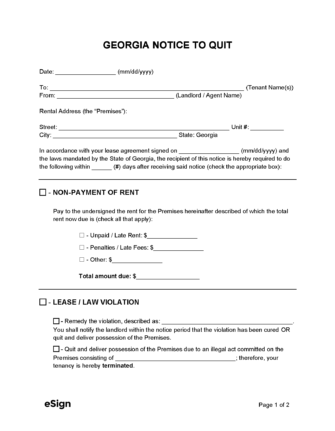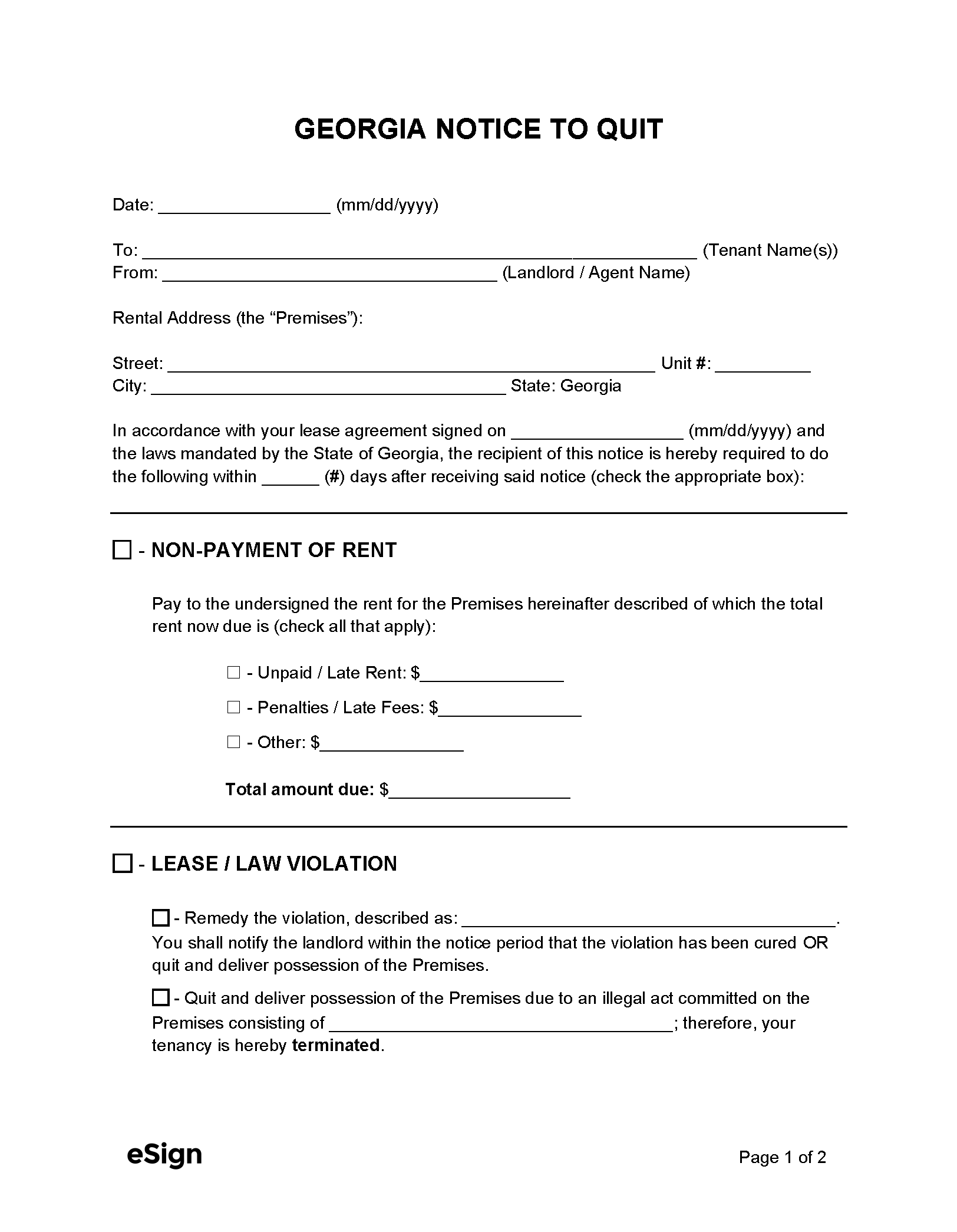Eviction Notices: By Type (3)
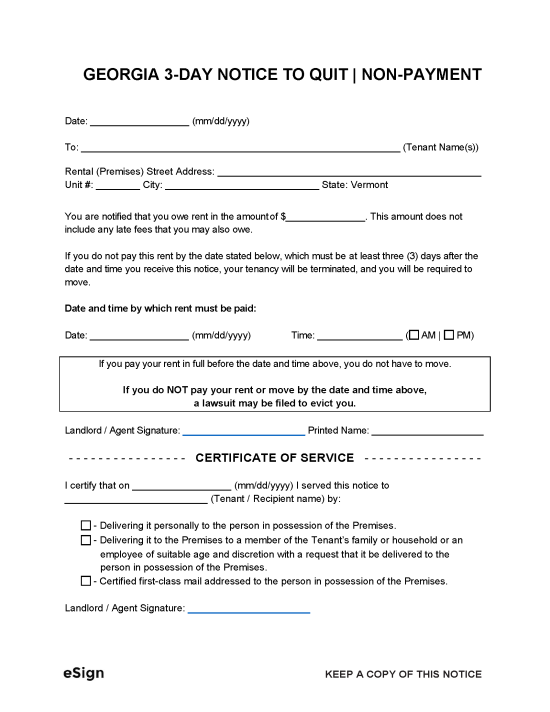
3-Day Notice to Quit | Non-Payment – Demands that the tenant vacate the premises within three days due to non-payment of rent.
Download: PDF, Word (.docx), OpenDocument
|
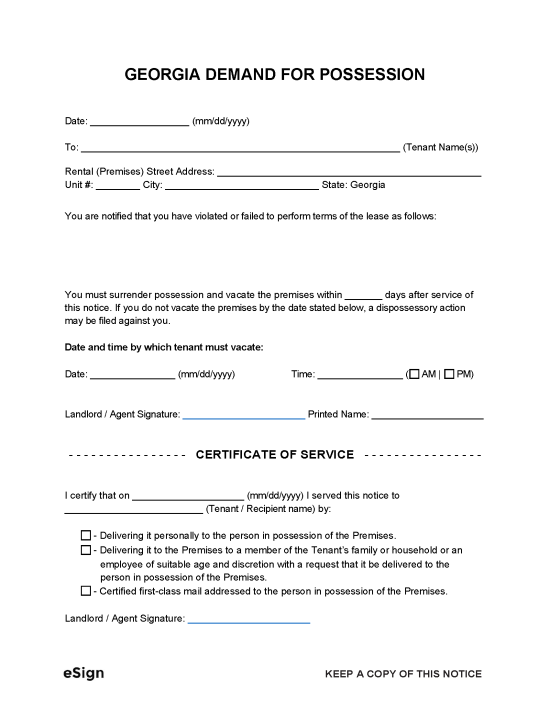 Demand for Possession – This notice must be delivered to a tenant before filing an eviction suit; it demands that the tenant leave the premises on a date chosen by the landlord. Demand for Possession – This notice must be delivered to a tenant before filing an eviction suit; it demands that the tenant leave the premises on a date chosen by the landlord.
Download: PDF, Word (.docx), OpenDocument |
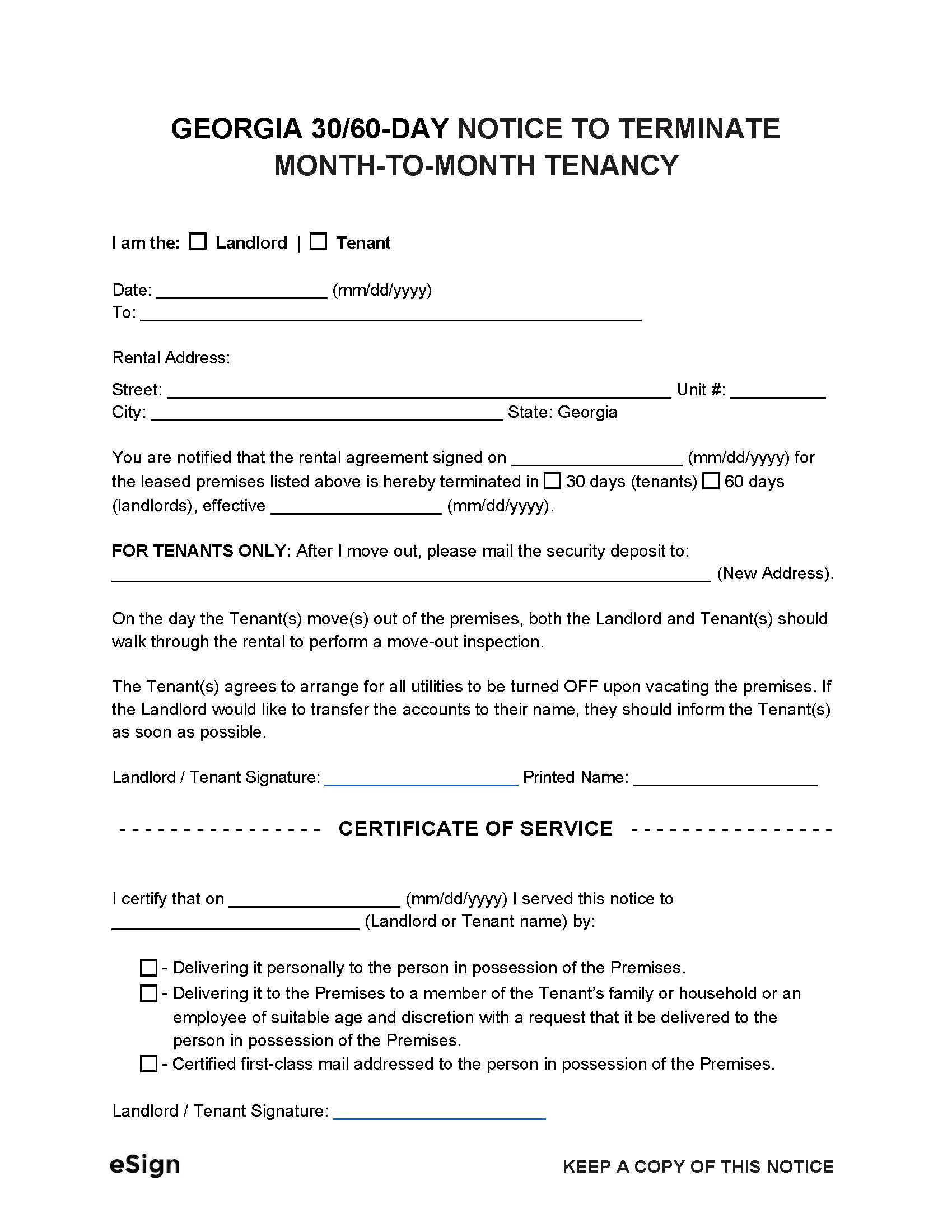 30/60-Day Notice to Terminate | Month-to-Month Lease – Used by a landlord or tenant to notify the other that they intend to terminate their at-will tenancy. 30/60-Day Notice to Terminate | Month-to-Month Lease – Used by a landlord or tenant to notify the other that they intend to terminate their at-will tenancy.
Download: PDF, Word (.docx), OpenDocument |
Notice Requirements
How to Evict a Tenant in Georgia
Step 1 – Serve Notice
Before a tenant can be evicted, the landlord must send them a notice to quit and post it on the property. In Georgia, the grounds for eviction are failure to pay rent or not vacating the premises after a lease has expired or been terminated.
If the tenant does not comply with the notice to quit, they must send a Demand for Possession notice ordering the tenant to leave the property before they can file a dispossessory action.
Step 2 – Dispossession Action
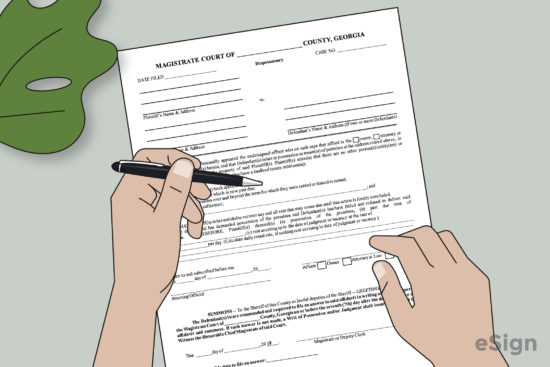
Step 3 – Serve Tenant
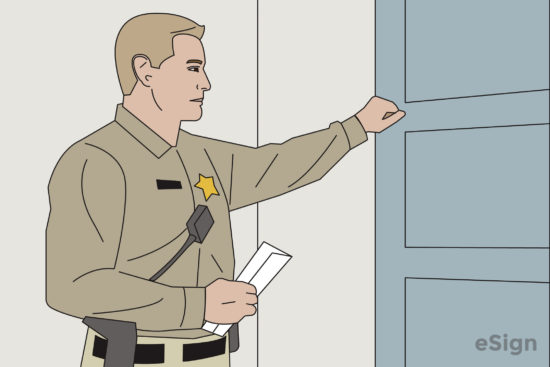
Step 4 – Tenant’s Payment
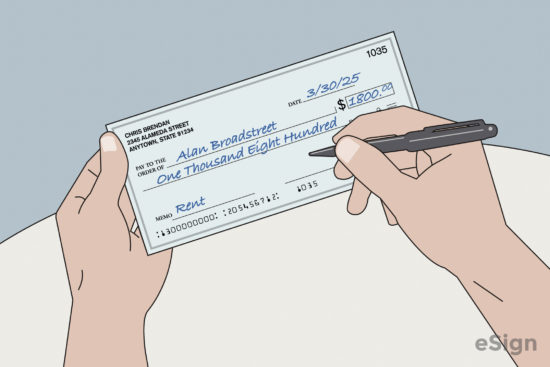
Step 5 – Tenant’s Answer
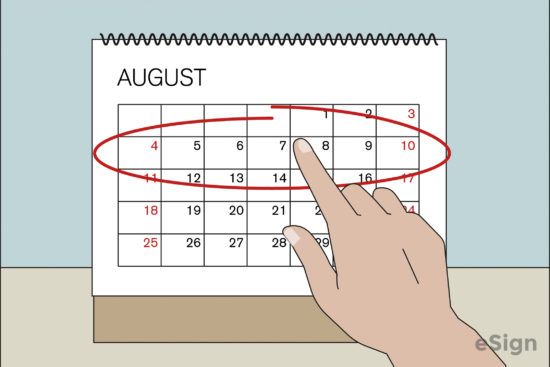
Step 6 – Hearing (If Applicable)
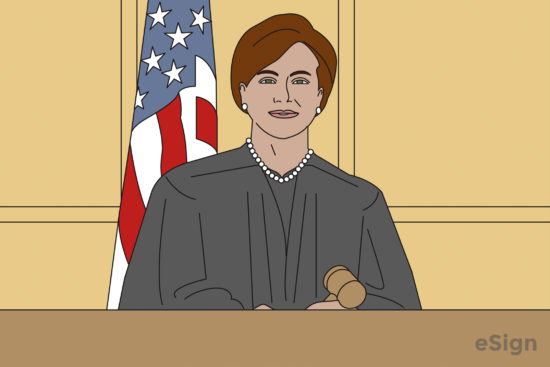
Step 7 – Judgment
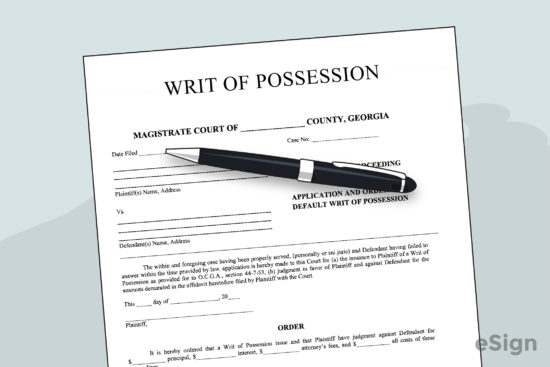
Court Forms + Resources
Forms
- Dispossessory Affidavit
- Signed by: Landlord (or Attorney), Attesting Official, and Magistrate or Deputy Clerk
- Dispossessory Answer (Fulton County Sample Form)
- Signed by: Tenant (or Attorney) and Deputy Clerk
- Application and Order for Default Writ of Possession
- Signed by: Landlord and Judge
- Writ of Possession
- Signed by: Judge
Resources
